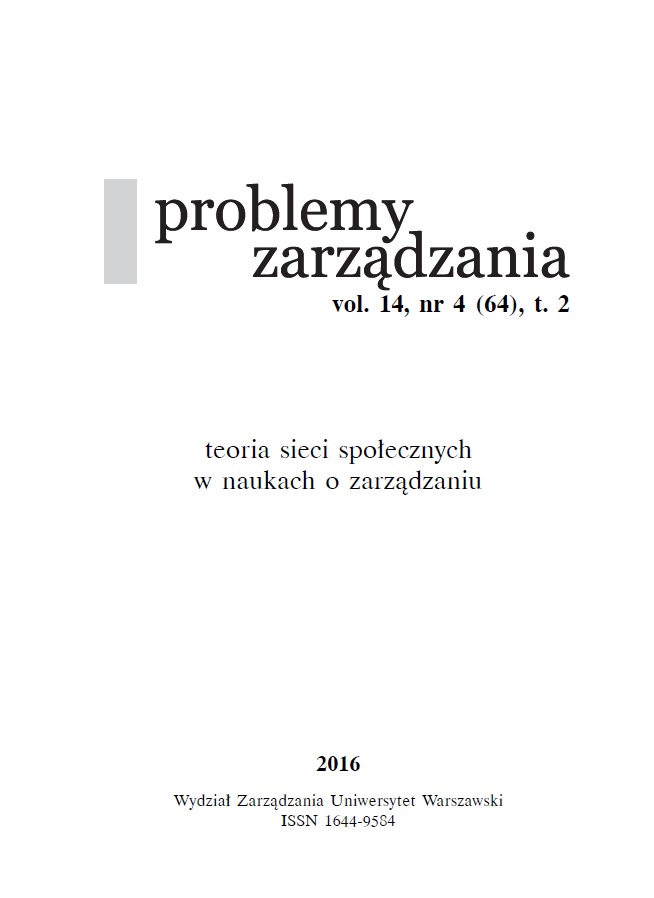Analiza relacji sieciowych w organizacji opartej na wiedzy
Network Relationships Analysis in a Knowledge-Based Organization
Author(s): Arkadiusz Kawa, Monika MatusiakSubject(s): Social Sciences, Business Economy / Management
Published by: Wydawnictwo Naukowe Wydziału Zarządzania Uniwersytetu Warszawskiego
Keywords: science parks; network relations; knowledge-based organizations
Summary/Abstract: Science and technology parks are important nodes in regional and national innovation systems. Because of this role, they are an example of knowledge-based organizations, for which being networked, understood as flows of information, project and client-service cooperation and informal flows such as trust, becomes a valuable asset. The objective of this article was to analyze network relations between the employees of one of Polish science and technology parks as a part of a strategic analysis aimed atidentifying key challenges for this organization after the predicted diminishing of available public grants. The point of special interest was information flows in the context of their number and intensity (width and depth of the network) that are a basis for efficient knowledge-transfer and innovation services for clients. In this article, according to the ICT science, information flows are treated as a part of knowledge (data-information-knowledge sequence) and its proxy. The rationale for such a decision is the fact that a group of highly competent employees, with significant levels of both codified and tacit knowledge, was analyzed. Moreover, they were asked to focus on information significant from the point of view of their work in the science and technology park. The results achieved by application of the SNA method allowed the identification of employees who are knowledge nodes, both in the perspective of senders and recipients of information. They are already in or should be appointed to managerial positions in theorganization and their relations with other employees grouped with them in knowledge clusters can be a basis for reorganization.
Journal: Problemy Zarządzania
- Issue Year: 14/2016
- Issue No: 4 (64)
- Page Range: 98-119
- Page Count: 22
- Language: Polish

